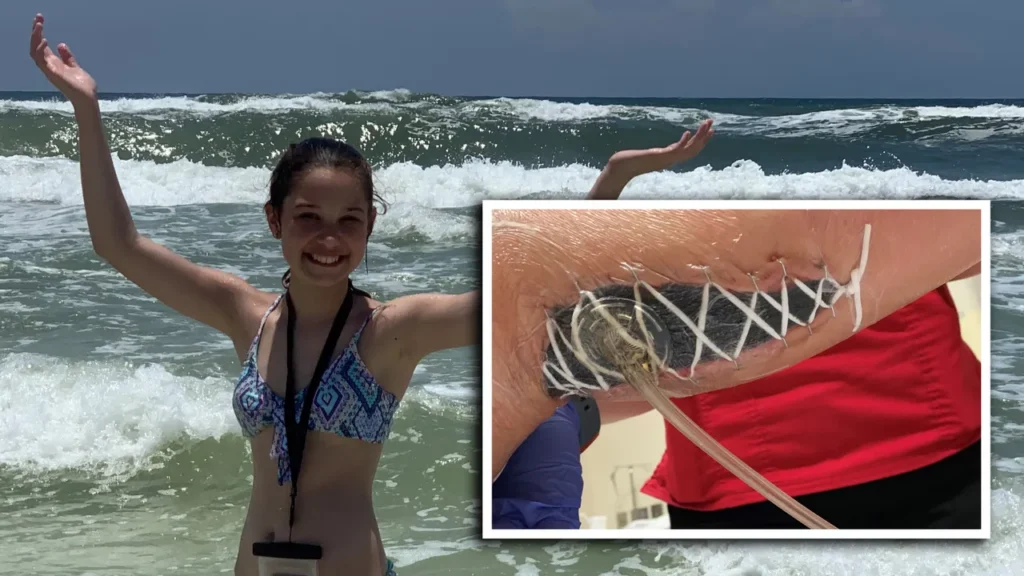Introduction
Vibrio vulnificus infections are notably rare, especially in the Northeastern United States. However, recent incidents highlight the importance of taking precautions when entering marine environments.
The News

As Labor Day approaches and schools reopen, many New Yorkers plan beach getaways, facing potential hazards like traffic, sunburns, possible shark encounters, and the perilous Vibrio vulnificus. This dangerous flesh-eating bacteria thrives in warm, brackish waters. Since July, there have been four reported infections in the greater New York area, with three fatalities. In Connecticut, two cases were linked to saltwater exposure in Long Island Sound, and another to raw oyster consumption, reflecting the bacteria’s preference for warm water environments.
The Back Story

The recent northward spread of these cases could be attributed to more precise diagnostics or to climate-induced warmer waters. Vibriosis, particularly from V. vulnificus, is relatively rare but can be fatal, with mortality rates reaching 33%. This bacterium can infect through water contact on open wounds, leading to rapid flesh decay and potential sepsis, or through the consumption of contaminated raw oysters, particularly dangerous for the immunocompromised or those with liver conditions.
What to Watch
Vibriosis can manifest a wide array of symptoms from gastrointestinal distress to severe infections at wound sites, which can escalate quickly without prompt medical intervention. Recognizing and treating these infections early is critical, often requiring laboratory confirmation and aggressive treatment, including antibiotics and possibly surgery.
Your Beach Weekend
For those at higher risk, such as the elderly or those with certain medical conditions, extra precautions should be taken. Protective attire in potentially contaminated waters and avoiding oceanic activities with any open wounds are advised to prevent infection.
What’s Next

The shifting climate may increase the prevalence of Vibrio infections further along the Northeast coast. It is advised for high-risk groups to avoid raw or undercooked shellfish and to take special care when handling them.
In Summary

A series of recent incidents involving Vibrio vulnificus infections underline the growing threat posed by this flesh-eating bacteria, amplified potentially by climate change. Awareness, preventive measures, and rapid response to symptoms are key to managing the risks associated with this dangerous pathogen.
Note
A correction has been made to accurately reflect the mortality rate of V. vulnificus infections as 33%, not the survival rate, as previously stated.



